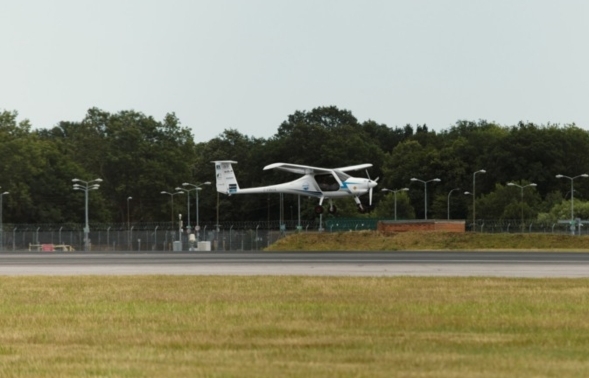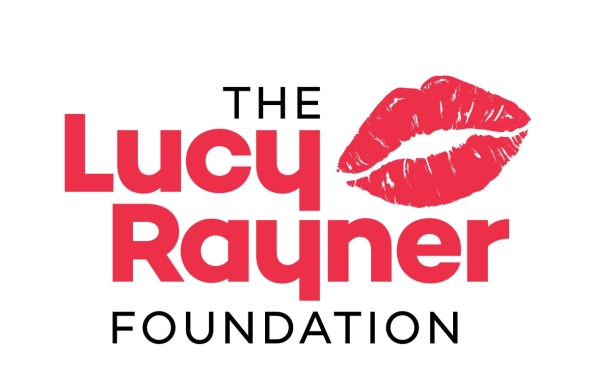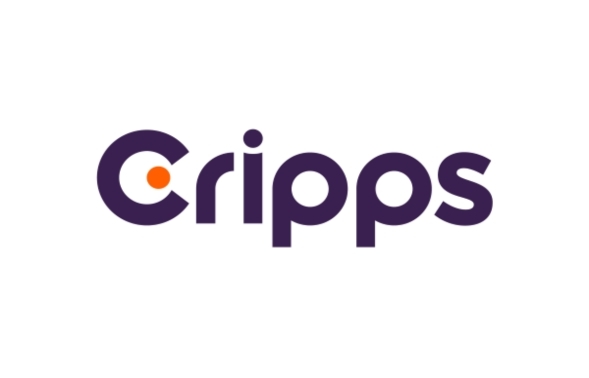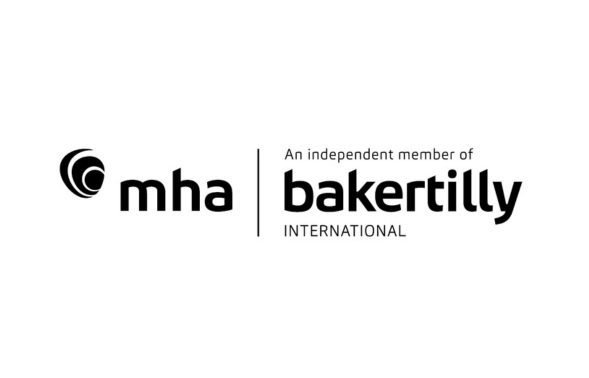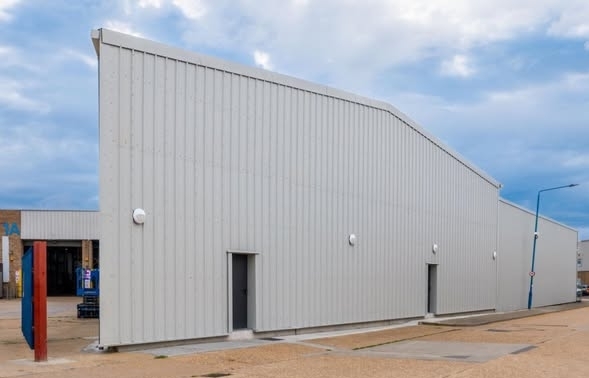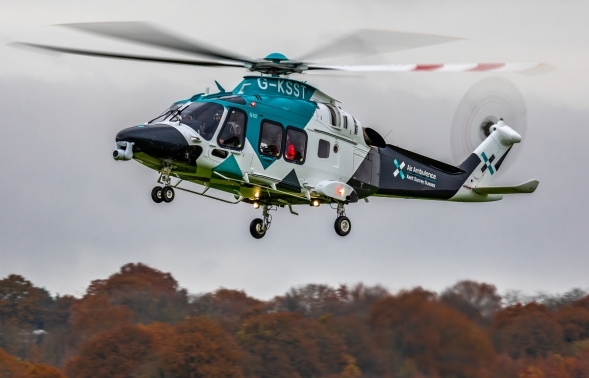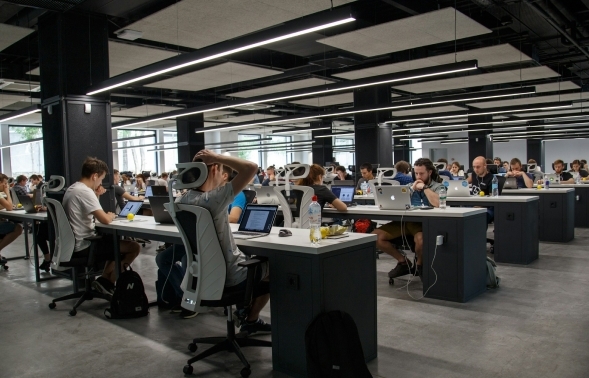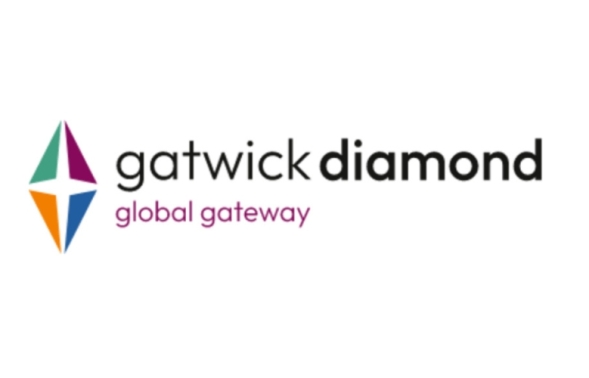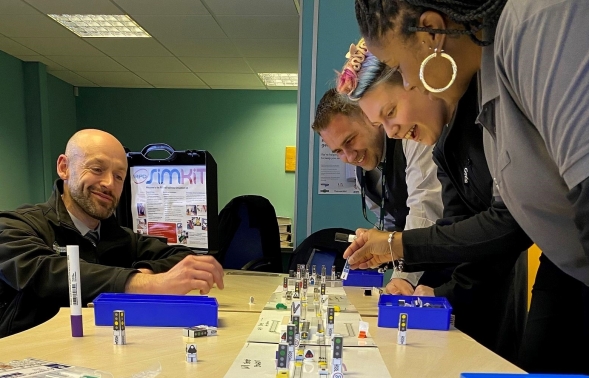CHIEF EXECUTIVE OFFICER'S REPORT The Chief Executive Officer's commentary on activity and performance of Gatwick over the previous quarter was discussed. GATCOM thanked GAL for the regular updates on the rapidly changing circumstances at Gatwick over the past few months. Key points to note are:
Impact of COVID-19
• the impact of the global pandemic on Gatwick has been devastating and unprecedented with a dramatic drop in passenger volumes, significantly reduced aircraft movements.
• Currently, around 8000 job losses are estimated across the airport community and a high number of staff on furlough - over 90% of Gatwick Airport Limited's (GAL) own staff were put on the Government's Job Retention Scheme.
• In the period April to June 2020 Gatwick consolidated operations in South Terminal and limited scheduled flights between 14:00 and 22:00.
• Over the three months Gatwick handled 670 air traffic movements with a total of 45,149 passengers (in 2019 Gatwick was handling around 4 million passengers per month). Gatwick facilitated humanitarian cargo flights (10 dedicated cargo flights plus other passenger aircraft carrying cargo of medical supplies, PPE and fresh food), and a total of 56 repatriation flights.
• The impact on the local economy has been severe. GAL is working with stakeholders and partners to bring forward plans to support the local economic recovery.
Recovery of Airport Operations
• the North Terminal re-opened on 15 June and hours of operation increased to 06:00-22:00 with easyJet re-starting flights alongside Wizz Air, Ryanair, Belavia, Vueling and Blue Island.
• Well-being and safety of passengers and staff remain a top priority. A range of measures have been put in place which include social distancing, hand sanitation and hygiene facilities, enhanced cleaning regimes and the wearing of face coverings for both passengers and staff.
• GAL expect around 100 aircraft movements per day through to the end of July. It is estimated that movements will increase to around 350-400 per day through August as more airlines restart services (in 2019 Gatwick handled around 900-950 movements per day in the peak summer months). Normal hours of operation will begin to return over the coming months as there was still airline demand to use the night-time slots.
• GAL continues to work with Government Departments and has made clear what is needed to support recovery. Its key asks are:
1. Make borders fair: Develop risk-based quarantine rules and Foreign Office advice on a country-by-country basis, and build 'air bridges' between countries
2. Unlock capacity: Allow airlines to take over vacant slots through a resumption of 'use it or lose it' slot allocation rules
3. Protect jobs: Extend the furlough scheme to April 2021, protecting thousands of jobs in airports and airlines
4. Free up communities: Allow airports the same business rate exemptions as other businesses, freeing up local authorities from rate collection
5. Streamline regulation: Provide a common-sense approach to regulation and fees for the Civil Aviation Authority, air traffic control, and others.
GATCOM agreed that its perspective on GAL's key asks be included in a letter to the Secretary of State for Transport (see key messages under the Chair's report of the GATCOM Steering Group below)
• GATCOM highlighted the need to re-build public confidence in air travel and enquired about the 'Track and Trace' requirements for airports. Members were referred to the Government's Guidance for aviation - click here and to the requirements to provide contact details before travel - click here. Airlines also have information for passengers on their websites.
Capital Investment Programme (CIP)
• the current CIP is paused. A small number of projects already under construction have continued.
• The Northern Runway project is also paused but GAL remains committed to the project and aims to hold the public consultation in 2021.
• GAL responded to questions about the impact of the crisis on GAL's financing and profitability. The cost of maintaining operations remain exceptionally high and the significant reduction in traffic has severely impacted income and revenues in the near term. GAL management took swift action immediately to protect the business and confirmed that Gatwick was in a better position financially than many other UK airports.
• GAL expects traffic to return to 2019 levels in the next three to four years.
Other GAL activities to note are:
• Airspace Modernisation: FASI-South - although this project is paused, GAL continues to engage with air traffic providers, neighbouring airports and the Airspace Change Organising Group (ACOG) in considering how to progress. [ACOG published its report "Remobilising the Airspace Change Programme" the day following the GATCOM meeting - click here to see press release. The Secretary of State for Transport and the CAA also issued a joint statement alongside that publication asserting their continued commitment to airspace modernisation - click here to see.]
• Route 4: 2012 airspace change - the CAA requires GAL to remove, by September 2020, the temporary Route 4 satellite-based departure routes - RNAV1 Standard Instrument Departures (SIDs) - that were introduced on 26 May 2016. Once these RNAV1 SIDs are removed airlines will continue to fly Route 4 departures with the track over the ground guided by a satellite-based coded overlay of the currently published conventional SIDs. Because coded overlays fall outside of the regulated process it is not possible to predict the variations in aircraft track that may result.
2018 airspace change proposal - the impact of Covid-19 has delayed the progress of the Route 4 2018 airspace change. GAL is considering how to address the questions raised by the CAA. However, given the delay to the process and the impact of Covid-19 GAL's plans for progressing this ACP will be significantly delayed.
GATCOM members reported local community feedback on changes in the distribution of traffic departing on route 4 and asked whether any changes to flight paths had been made. GAL confirmed that no changes had been made to the flight paths as published but will investigate and will provide more detail to members.
• Northern runway project airspace change proposal - GAL met with the CAA to initiate the airspace change process. Although the northern runway project airspace design would be the same as it is today dual runway operations would require minor modifications to the airport's Aeronautical Information Publication (AIP). The CAA published its decision letter (CAP 1908) categorising the northern runway project airspace change as Level 0 'notification only', meaning there is no requirement to consult on modifications as part of an airspace change.
• Gatwick Noise Management Board (NMB) - GAL expects to re-commence some NMB activity with effect from August. The Chair of the NMB NEX is likely to write to NMB members in the near future about the timetable for seeking nominations from local councils and community noise groups.
• Gatwick Noise Monitoring Group - this GAL/local authority environmental health officer group is expected to re-convene in the near future when the CAA's draft report on the 2019 noise exposure contours will also be considered.
• New Corporate Charity partnership - GAL started its new charity partnership with SASH, the local hospital charity in April. GAL also continues to support Air Ambulance for Kent, Surrey and Sussex and Gatwick Travel Care.
• VINCI UK Foundation - in April VINCI announced a special €400,000 UK fund for charities who are supporting people during the pandemic. Several local awards have been made including to Crawley Open House and SASH to fit out a staff break out area.
• East Surrey YMCA laptop refurbishment project - GAL was thanked for agreeing to donate unused laptops to the YMCA project to provide refurbished laptops to disadvantaged children in Horley to enable home learning during the COVID-19 schooling limitations.
• Local Community Engagement - GAL plans to launch in the early Autumn a new online engagement forum for local community representatives so that they can receive the latest updates from GAL.
GATCOM STEERING GROUP
• The Chair's report of the GATCOM Steering Group meeting was received.
• the Steering Group's recommendation that a letter be sent to the Secretary of State for Transport to give GATCOM's perspective on GAL's five asks of Government to support the recovery of operations and to highlight the need for continued collaborative working between all parties in addressing the current severe economic crisis was agreed. GATCOM had empathy for all parties and interests impacted by the crisis.
• the approach to be taken in the letter to the Secretary of State was discussed. GATCOM agreed that:
o the suggested draft letter be amended to give a better balance between the environmental and economic considerations and to include the Prime Minister's phrase "Build back better" and highlight the need to take the opportunity to embrace a green recovery as well as addressing the climate change agenda.
o the Government should also be asked to consider using revenue generated from Air Passenger Duty to support targeted environmental improvements and mitigation measures. [The letter was sent to the Secretary of State for Transport on 22 July - click here to see]
PASSENGER ADVISORY GROUP (PAG) The report from the Chair of PAG was considered. The key points to note are:
• PAG has kept in regular contact with GAL throughout the COVID-19 crisis on plans to recover the airport operation and how to provide a safe journey for passengers through the airport.
• The PAG Chair and Vice-Chair had visited the airport to see first-hand the re-opened North Terminal, the measures put in place at the airport and facilities that were now offered.
• GATCOM commended the way in which GAL had managed, planned and begun recovery from the severe challenges imposed by the COVID-19 crisis.
• GATCOM recognised PAG's vital role as GAL's critical friend and passenger advocate during this difficult period and was keen to ensure that it continues to advise GAL on creating a positive passenger environment and experience at Gatwick.
GAL'S DECADE OF CHANGE PROGRESS REPORT 2019
• GAL launched its Decade of Change sustainability strategy in May 2010 which set out ambitious targets to deliver by 2020.
• Against a period of continued strong growth since that time GAL has continued to deliver its sustainability targets in all areas.
• Key highlights of progress in 2019 are:
o Net Zero: GAL played an active role in developing the UK Sustainable Aviation (SA) coalition's Decarbonisation Roadmap for UK aircraft emissions; and in February 2020, Gatwick signed the SA commitment to achieve net zero carbon emissions by 2050. SA's collective approach to decarbonisation is the first of its kind in the world. Although the COVID-19 crisis is a set-back for the industry it remains fully committed to achieving the net zero target.
o Carbon: GAL retained Level 3+ 'neutral' Airport Carbon Accreditation.
o Noise: 62% of flights are by the quietest aircraft (in 2018 it was 56%).
o Waste: for the 4th year no untreated waste was sent to landfill. Waste reuse/recycling was also increased to 71% - up from 64% last year - this includes 10% turned into biomass onsite. All empty coffee cups and plastic bottles are recycled.
o Community: £1 million from the Gatwick Foundation Fund has helped more than 100,000 local people since its launch in 2016.
o Biodiversity: GAL retained the Wildlife Trusts' Biodiversity Benchmark for the 6th year.
o Surface transport: 47% of passengers used public transport to get to Gatwick.
GATCOM Work Programme 2020/21
• In light of the pause on a number of GAL's projects and work, GATCOM has reviewed its work programme 2020/21.
• The work programme now includes two new objectives related to GATCOM's role in encouraging collaborative working, influencing government policies and interventions as well as GAL's approach to recovery from the COVID-19 crisis and looks at ways to harness community engagement and collaboration.
• An objective to continue dialogue with GAL on its work and new timetable for progressing the Development Consent Order application for the Northern Runway project is also included. • The objective relating to the DfT review of the night flights regime remains in the programme. The DfT aims to issue its call for evidence in the last quarter of 2020.
LOCAL AIR QUALITY MONITORING
Annual Monitoring Results 2019
GATCOM received the report prepared jointly by GAL and Reigate and Banstead Borough Council (R&BBC) on the results of annual monitoring of air quality in the Horley Gardens Estate Air Quality Management Area (AQMA) and at other sites in the vicinity of the airport. The key points to note are:
• Whilst the annual average air quality objective for nitrogen dioxide was not met at one receptor (monitoring site RB149) on the A23, which was confined to a small number of properties at the junction of the A23 with Massetts Road, local sources of pollution within the Horley Gardens Estate Air Quality Management Area showed a resumption in the downward trend.
• As has been reported over the past three years, the non-attainment of the air quality objective at site RB149 is primarily due to road traffic (airport related and non-airport related) which both the Borough Council and GAL agrees needs further attention and potential mitigation measures are being explored.
• The average PM10 concentrations showed a significant improvement in 2019 and continued the downward trend since 2007.
• An initial review of the effect of the COVID 19 lockdown measures on air quality has been undertaken which revealed that in April and the first week of May, nitrogen dioxide levels in Horley Gardens compared to the previous three years are down by 50% and a significant improvement in air quality has been seen. GATCOM asked to be advised of the results of monitoring over the next quarter to help build an understanding of the airport's contribution to pollution levels.
• GATCOM asked for more information on what the pollution levels meant in terms of the impact to human health.
• It was questioned whether the national standards for air quality were in need of review by the Government given various sources of research evidence now available.
Ultrafine Particles (UFP) Research Monitoring Results
• Reigate and Banstead Borough Council was participating in a research project into UFP pollution levels in residential areas around the airport.
• The initial research monitoring results revealed that UFP concentrations at the RG1 site on the Horley Gardens Estate were around double those seen at the background site in London and that the size and number of particles varied markedly depending on the wind direction with increased concentrations when winds are from the airport.
• Research into UFP is ongoing and the evidence base is building.
• GATCOM highlighted the need for Government funding towards UFP research and the need for standards to be established to enable monitoring of this pollutant.
• There was a need to develop an understanding of how air pollution could be reduced in future through greater use of bio-fuels.
All the air quality annual monitoring reports since 2007 are available on GATCOM's website.
GATWICK AREA COMMUNITY TRUST (GACT)
GATCOM received an update on the work of GACT from Alan Jones (Burstow Parish Council), GATCOM's nominated trustee on GACT. The key points to note are:
• GAL provides funding in excess of £220,000 for GACT under the terms of the Section 106 agreement which comprises a set contribution from GAL and those monies collected from aircraft noise penalty fines.
• This year the application process for grant funding resulted in 151 applications from organisations totalling £583,824.
• GACT has awarded grants to 113 projects to the value of £228,651. This included a late application from East Surrey YMCA for a project to refurbish 100 laptops and supply internet access for disadvantaged children in Horley to enable home learning during COVID-19 schooling limitations.
APPOINTMENT OF SUB-GROUPS
GATCOM Steering Group and Passenger Advisory Group - GATCOM appointed members to serve on both groups for the ensuing year.
As part of GATCOM's succession planning, GATCOM's Lead Member for Noise for the ensuing year is Mike George, Horley Town Council. Alan Jones is GATCOM's Deputy Lead Member for Noise working closely alongside Mike and GATCOM's NATMAG members.
